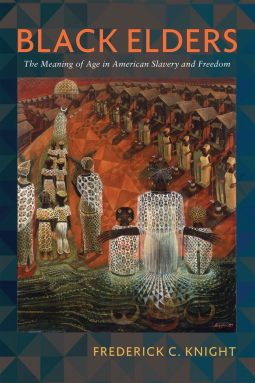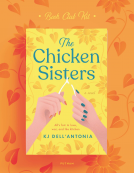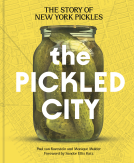
Black Elders
The Meaning of Age in American Slavery and Freedom
by Frederick Knight
This title was previously available on NetGalley and is now archived.
Send NetGalley books directly to your Kindle or Kindle app
1
To read on a Kindle or Kindle app, please add kindle@netgalley.com as an approved email address to receive files in your Amazon account. Click here for step-by-step instructions.
2
Also find your Kindle email address within your Amazon account, and enter it here.
Pub Date Feb 02 2024 | Archive Date Dec 18 2023
Talking about this book? Use #BlackElders #NetGalley. More hashtag tips!
Description
Would there have been a Frederick Douglass if it were not for Betsy Bailey, the grandmother who raised him? Would Harriet Jacobs have written her renowned autobiography, Incidents in the Life of a Slave Girl, if her grandmother, a free black woman named Molly Horniblow, had not enabled Jacobs’ escape from slavery?
In Black Elders, Frederick C. Knight explores the experiences of African Americans with aging and in old age during the eras of slavery and emancipation. Though slavery put a premium on young labor, elders worked as caregivers, domestics, cooks, or midwives and performed other tasks in the margins of Southern and Northern economies. Looking at black families, churches, mutual aid societies, and homes for the aged, Knight demonstrates the pivotal role of elders in the history of African American community formation through Reconstruction.
Drawing on a wide array of printed and archival sources, including slave narratives, plantation records, letters, diaries, meeting minutes, and state and federal archives, Knight also examines how blacks and whites, men and women, the young and the old developed competing ideas about age and aging, differences that shaped social relations in coastal West and West Central Africa, the Atlantic and domestic slave trades, colonial and antebellum Southern slave societies, and emancipation in the North and South.
Black Elders offers a unique window into the individual and collective lives of African Americans, the day-to-day struggles they waged around their experiences of aging, and how they drew upon these resources to define the meaning of family, community, and freedom.
Advance Praise
“By centering the politics of age and eldership from the height of the Atlantic slave trade through the Civil War, Black Elders offers a new and important contribution to the study of Black life in slavery and freedom.”
—Erica Armstrong Dunbar, author of Never Caught: The Washingtons’ Relentless Pursuit of Their Runaway Slave,
Ona Judge
Available Editions
| EDITION | Other Format |
| ISBN | 9781512825664 |
| PRICE | $39.95 (USD) |
| PAGES | 288 |
Available on NetGalley
Average rating from 4 members
Featured Reviews
 Reviewer 117477
Reviewer 117477
It's always tricky to review non fiction books, especially those with such scholarly insight.
Some of the parts that I found noteworthy :
- Comprehensively covers all the periods of American slavery, from the earliest days of the slave ships' perilous voyages across the Atlantic to the days of the Reconstruction.
- The accounting of age in that context : the very young and old counted as "less than a person", to the many "hundred yeared" old folks floating around.
- The labour lifecycle of the enslaved : shifting from working the fields in their prime, to more ancillary roles closer to the home as they aged.
- How elders were roped in as surrogate parents, when slavers auctioned off entire families to the four winds.
- How the governments of that time did not want to support formerly enslaved aged people out of their tax money, and the myriad court cases that followed
- How delulu can someone get : "Having invested in the idea of lifelong ownership of slaves, they were surprised by the reality of slave rebelliousness."
My thanks to Netgalley and the author for the eARC. All opinions my own!
Black Elders: The Meaning of Age in American Slavery and Freedom is a thoughtful and nuanced monograph on the politics and realities of aging in slave societies written by Dr. Frederick C. Knight. Released 2nd Feb 2024 by the University of Pennsylvania Press, it's 248 pages and is available in hardcover and ebook formats.
This is a meticulously researched and annotated survey course on aging and the social effects for the slave culture and society in the history of the United States. How did slaves' roles change as they aged, in terms of duties and expectations? How were they viewed in Black culture and white culture? While not, strictly speaking, a rigidly academic ethnography (the identities of the subjects are for the most part not anonymized), there is an undeniably academic flavor throughout. As an unvarnished *true* account, with lots of contemporary accounts, letters, historical first person resource materials, etc, it's truly heartbreaking and difficult to read in places. One contemporary account of Ida B. Wells' antilynching campaign discusses quite factually her exile from her home state due to real threats on her life for, in effect, saying that southerners should really stop lynching black Americans. Possibly the most poignant and tragic fact is the mirror to current American society where the voices of sanity and reason are *still* making the same plea to just stop murdering black and brown Americans more than 150 years later.
The author is an academic and this is what I would call a layman accessible academic treatise of the subjects in all their incarnations as they intersect culture and history. As an academic work, it is *full* of annotations, notes, illustrations and minutiae (in a good way). The author definitely "shows his work" in full. I loved poring over the notes and the exhaustive bibliography and full chapter notes and annotations. The notes and references are likely worth the price of admission for anyone interested in the subject and there's obviously been an incredible amount of time spent on research and resource gathering on the part of the author.
The language is rigorous and moderately formal. It's definitely not inaccessible for the average reader, but it will take some effort (and that's a good thing). This would make a good support text for classroom or library use, for history, race studies and allied subjects, as well as a superlative read for the particularly US history-interested reader. It would also be an interesting and appropriate choice for nonfiction book club discussion.
Five stars. This is well and deeply researched and engaging.
Disclosure: I received an ARC at no cost from the author/publisher for review purposes.
 Samantha W, Reviewer
Samantha W, Reviewer
The author provides an astonishing number of individual examples of black elders from the American Revolution through the Civil War and their impact on family, the work force, the church, and politics. While it sometimes feels a little disjointed and repetitive, the sheer number of personal quotes and stories the author has compiled is an impressive accomplishment.
I had hoped for a more in-depth look at the black family and how the situations they were placed in caused the creation of non-biological family units. There are some individual examples of this taking place, but not the broader look at how it impacted (and still impacts) black culture that I was looking for. The author does include many examples of hardship and injustice endured by black elders and their perseverance to serve as honored members of their communities.
One thing that will stay with me from this book was the author's habit of calling plantations forced labor camps. While this is accurate, it is not a term I had applied in this situation. It was a powerful way to strip away any romanticism of the southern plantation lifestyle. This and some of the little-known people Knight mentions were thought provoking and effective in helping readers consider our history from a point-of-view perhaps not previously considered.
Black Elders
The Meaning of Age in American Slavery and Freedom
Frederick Knight
Unraveling the tapestry of black aging across history, this poignant book delves into the intricate dance of eldership, a dance echoed through time and space. As Black History Month unfurls, it underscores the indispensable role black elders play in our collective story, dispelling the misguided notion that they are mere burdens. The narrative reveals the profound contributions of elders to transformative movements. From the resilient spirit of Booker T. Washington to the courageous legacy of Harriet Tubman, it paints a vivid picture of how elders shape the destinies of impactful leaders.
Especially in Black History Month, this book becomes a stirring call to recognize and cherish the aging members of our community, not merely for the wisdom they bestow but for the rich tapestry of their presence. It's an emotionally charged reminder to reach out, connect, and honor those who have weathered the storms of time.
Readers who liked this book also liked:
Silvia Moreno-Garcia
Historical Fiction, Literary Fiction, Sci Fi & Fantasy
Rachel Joyce
Historical Fiction, Literary Fiction, Women's Fiction
Brian Soonho Yoon
Children's Nonfiction, Crafts & Hobbies
Sam Morrison
Children's Nonfiction, Crafts & Hobbies, Outdoors & Nature


















